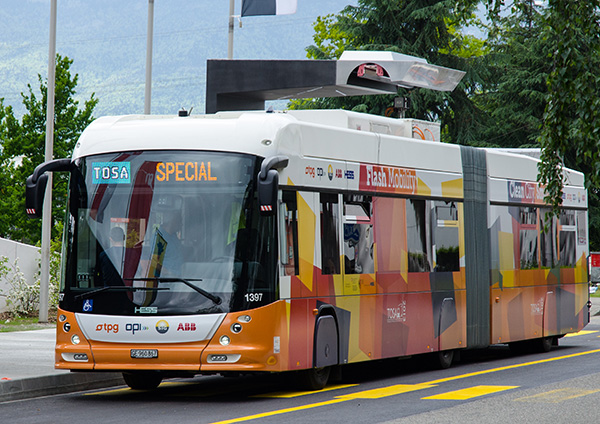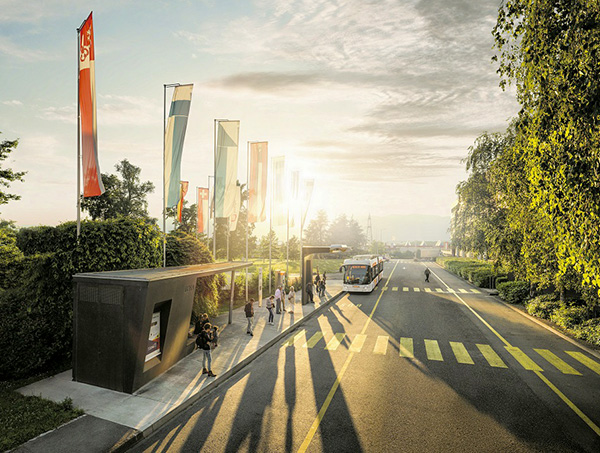Geneva will charge e-buses in 15 seconds
7/19/2016, Milan Šurkala
Geneva public transportation is going to use flash charging electric buses. The ABB company will provide fleet of TOSA e-buses that are going to be charged in 15-20 seconds at special bus stops.
The modern public transportation is going to be electrified. Nowadays, the number of hybrid buses is increasing and many cities are using fully electric buses already. Geneva in Switzerland will be one of them. Nevertheless, their buses will be special because of their flash charging. The charging stations at special bus stops provide 600 kW of power and 15 seconds of charging can increase the amount of stored electric energy by 2.5 kWh (3.3 kWh when charged for 20 seconds). Only 4-5 minutes of charging at the final stop is needed to fully recharge the battery. Slower 400kW chargers are used in terminals.

This contract will be the first commercial usage of TOSA e-buses of the ABB company from Switzerland. It will cost $16 million and that includes 12 TOSA e-buses created with a cooperation of HESS bus manufacturer. These buses provide a capacity for 133 passengers and are 18.75mm long.

The contract will also include 13 flash-charging bus stops on the Line 23 connecting suburban Geneva (Praille-Acacias-Vernet with 11,000 flats) and airport in Geneva, three terminals, four depot stations and five-year maintenance and service agreements. The whole line has 50 stations and, therefore, the energy that is charged at special charging stop has to last for the next three or four stops. The line should transport 10,000 passengers each day and save 1000 tons of CO2 per yer for 600,000 km.

Such a fast charging is not without complications. In order to avoid peaks on the grid, the energy is retrieved from special flash batteries at stops. The batteries in the buses are roof-mounted and they are optimized for such fast charging. They use nanocrystals made of a compound of lithium and titanium. The tradeoff is lower voltage of the batteries. The new Geneva's system should be completed by the spring in 2018.
.jpg)



.jpg)




